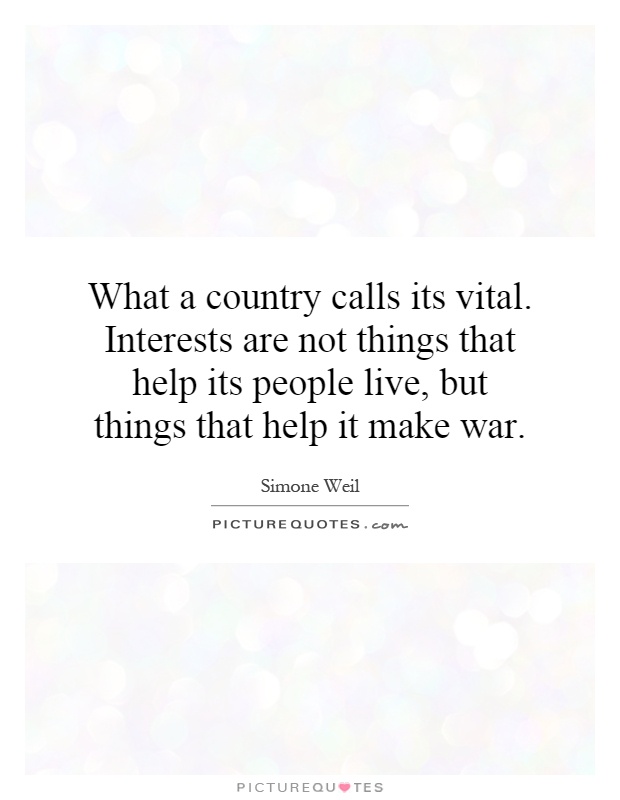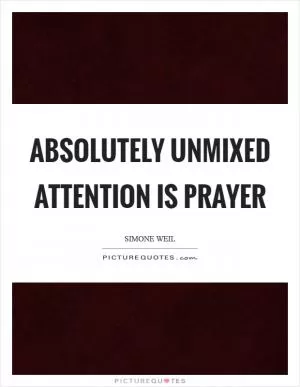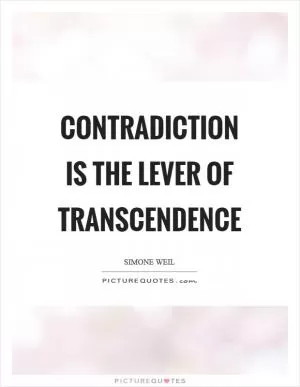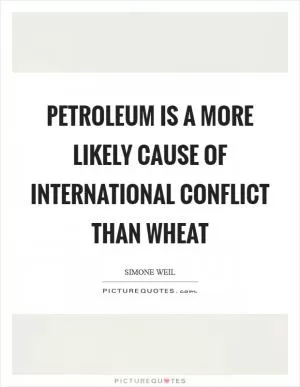What a country calls its vital. Interests are not things that help its people live, but things that help it make war

What a country calls its vital. Interests are not things that help its people live, but things that help it make war
Simone Weil, a French philosopher, political activist, and mystic, was known for her profound insights into the nature of power, violence, and oppression. One of her most famous quotes is, "What a country calls its vital interests are not things that help its people live, but things that help it make war." This statement encapsulates Weil's deep understanding of the ways in which governments prioritize militarism and aggression over the well-being of their citizens.Weil believed that the pursuit of power and domination often leads to the neglect of the most vulnerable members of society. In the context of war, governments often prioritize military spending and the acquisition of weapons over investments in healthcare, education, and social welfare programs. This prioritization of war-making capabilities at the expense of the basic needs of the population reflects a fundamental distortion of values and priorities.
Weil argued that the concept of "vital interests" is often used as a justification for military intervention and aggression. Governments often invoke the need to protect their national security or defend their strategic interests as a pretext for engaging in wars of conquest and domination. In reality, these so-called vital interests are often driven by a desire for power, control, and domination rather than a genuine concern for the well-being of the population.
Weil's critique of the prioritization of war-making over the needs of the people is particularly relevant in today's world, where militarism and violence continue to be pervasive. The global arms trade, military interventions, and the proliferation of nuclear weapons all reflect a world in which the pursuit of power and domination takes precedence over the promotion of peace, justice, and human rights.












 Friendship Quotes
Friendship Quotes Love Quotes
Love Quotes Life Quotes
Life Quotes Funny Quotes
Funny Quotes Motivational Quotes
Motivational Quotes Inspirational Quotes
Inspirational Quotes